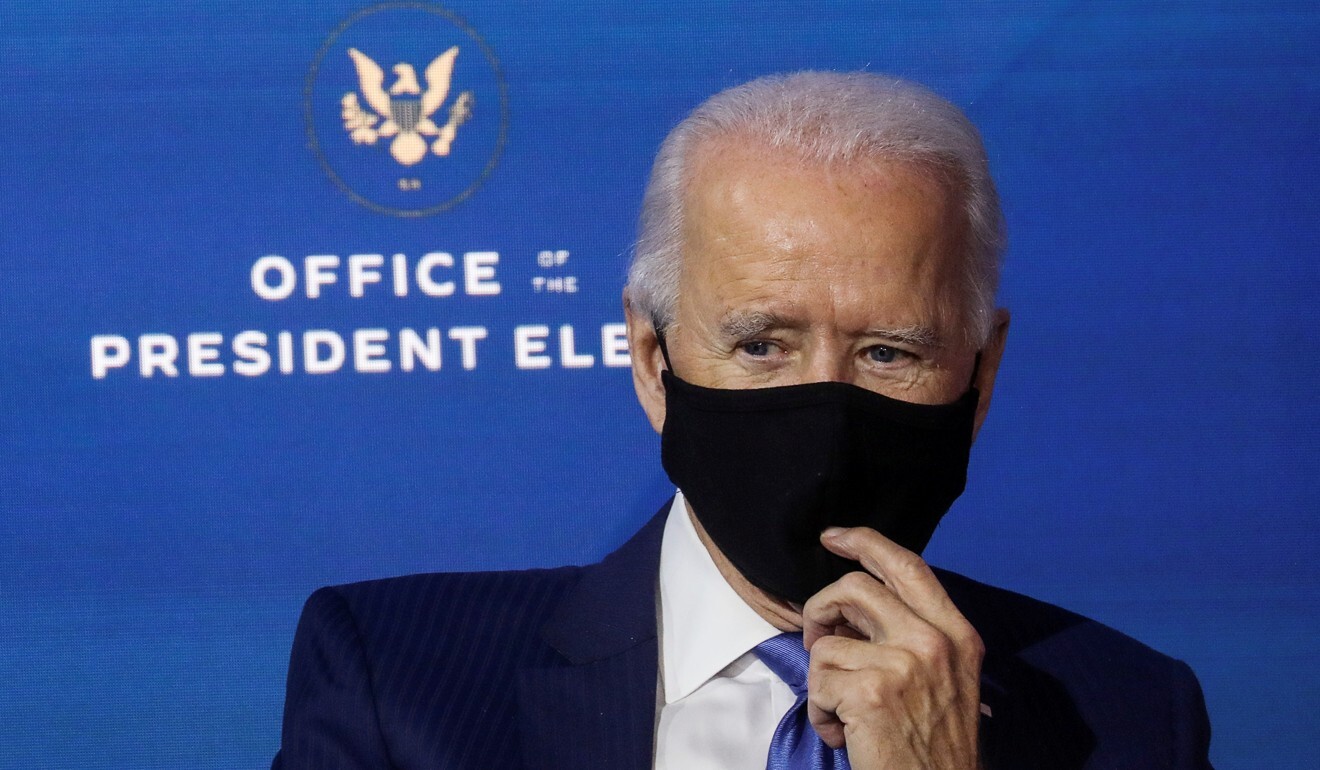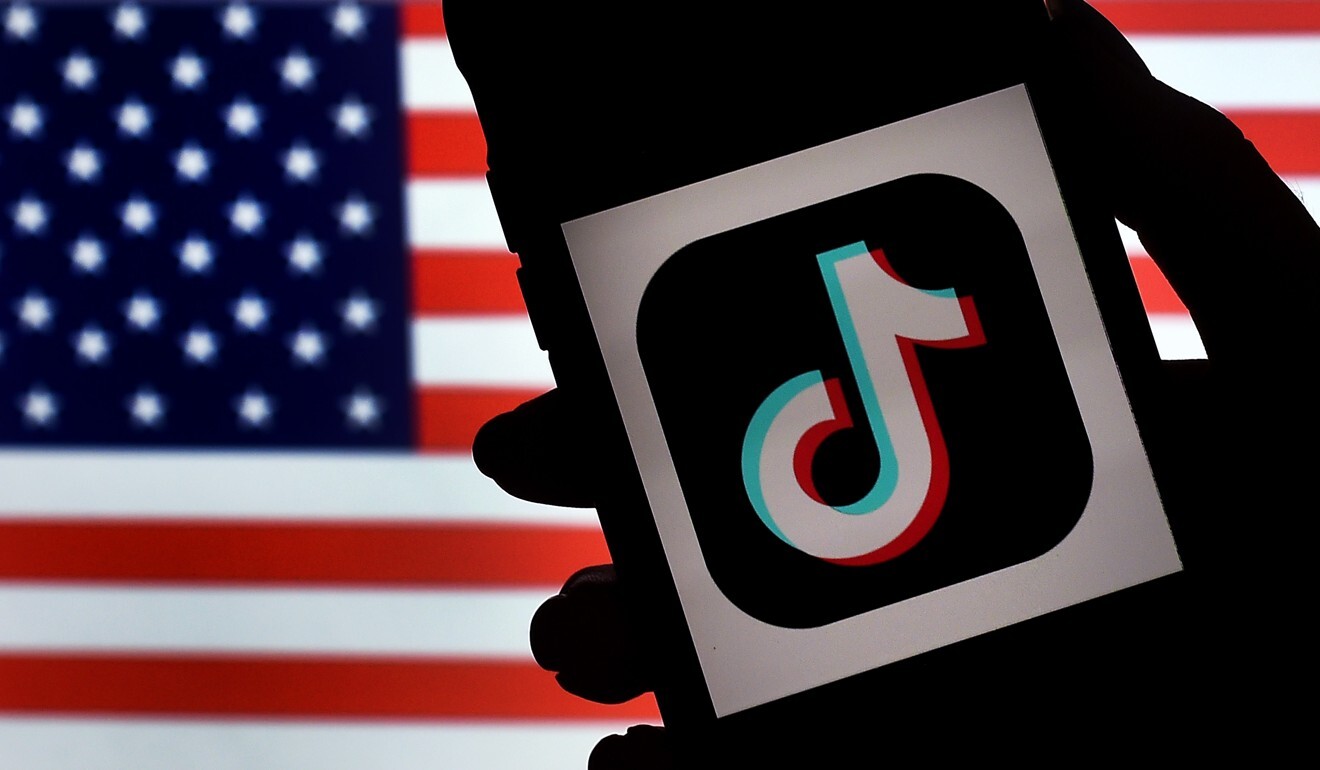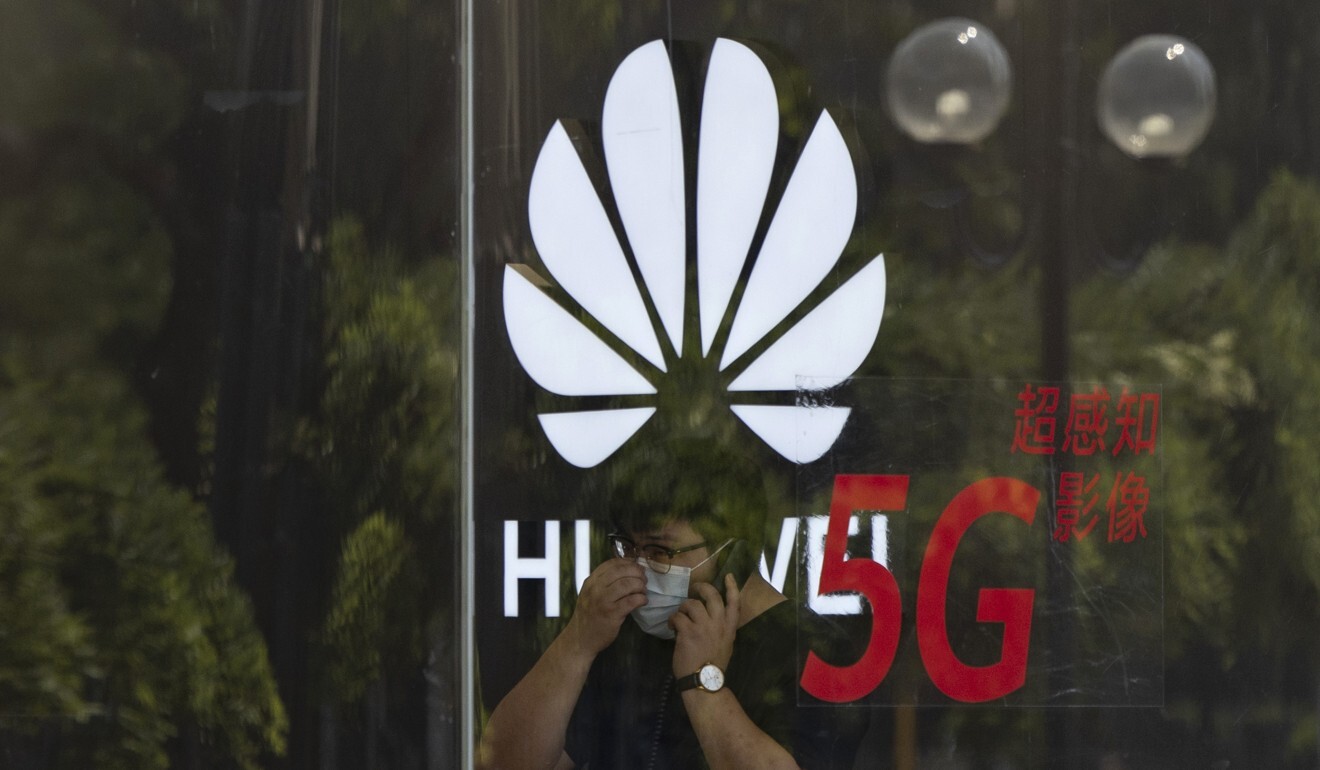
Tech to remain a tug-of-war between China and US in 2021 with Biden seen roping in allies to challenge Beijing on chips, apps, 5G and AI
- Analysts expect Joe Biden to adopt a multilateral approach to dealing with China when it comes to pushing back on trade and tech
- Beijing’s draft antitrust laws are aimed at reining in all internet-based monopolies, signalling heightened concern at their growing power
Clash of the Titans 2
“The two countries will remain locked in a strategic competition for economic and technological dominance because [the idea of] being competitors rather than partners is now firmly held in both Beijing and Washington,” said Agathe Demarais, UK-based global forecasting director at The Economist Intelligence Unit (EIU).
Analysts expect Biden to adopt a multilateral approach to dealing with China – breaking with Trump’s “America First” approach. Jake Sullivan, Biden’s national security adviser, has already called for “early consultation with our European partners on our common concerns about China’s economic practices” in relation to the proposed China-EU investment accord.
Expect more collaboration between the US and its traditional allies in relation to China on a range of issues, including human rights, intellectual property protection, semiconductor development, 5G network roll-outs and last but not least – data privacy.

“There will be another breakout consumer app from a China-aligned multinational [in future] and the Biden administration will have to assemble a cohesive strategy out of the wreckage of the Trump-TikTok phoney war,” said ex-Facebook chief security officer Alex Stamos on Twitter recently.
Yujie Xue
China to get smarter on cities
China currently has about 800 smart city pilot programmes under way, more than half the world’s total, according to the Qianzhan Industry Research Institute. It expects the size of China’s smart cities market to exceed 18 trillion yuan (US$2.75 trillion) by 2021 and 25 trillion by 2022.
Beijing has long-embraced technologies such as the Internet of Things, cloud computing, and big data to help improve government efficiency and public safety via surveillance or big data analytics – and the pandemic has only strengthened this.
“In the face of the 2020 pandemic, China’s new infrastructure and urbanisation policies stabilised the spread of the virus and are gradually restoring the country’s economic and industrial development,” said Patrick Zhan, research manager at IDC. “China’s smart city construction process will be further accelerated under the 14th Five-Year Plan.”
Yujie Xue
TikTok still dancing to the same tune
“Since the election, the Trump Administration seems to have lost interest in ByteDance,” said Dov Levin, a professor at the University of Hong Kong. Several US courts have also blocked the Commerce Department’s order to effectively ban TikTok’s operations in the US.
However Wade Weems, a Shanghai-based lawyer at Kobre & Kim, notes that the US administration has appealed those decisions. “So the cases and the issues [at stake] are still very much open,” he said.

Abishur Prakash, a futurist at the Center for Innovating the Future, a Toronto-based consulting firm, said hope at Chinese firms that things will “return to normal” with Biden as president are a “pipe dream”.
“The pressure exerted by Washington on China’s largest technology companies is only going to increase – regardless of who is in office. This will extend into all areas from 5G/6G to AI to data,” he said, adding that India’s political opposition to the encroachment of Chinese apps is likely to remain strong too.
Tracy Qu, Coco Feng
China leads dash for first sovereign digital currency
China tested its sovereign digital currency, the Digital Currency Electronic Payment (DCEP), in four cities in 2020 – Suzhou, Xiongan, Shenzhen and Chengdu, as well as at sites for the 2022 Beijing Winter Olympics.
The project is likely to undergo some more beta runs in 2021 ahead of a planned launch in 2022. Zou Chuanwei, chief economist at Chinese fintech firm Wanxiang Blockchain, said at a November event that if DCEP is used at the 2022 Winter Olympics it will serve some foreign users, heralding “the first step for DCEP to globalise”.
Coco Feng
Tencent tiptoes into 2021
The focus in the past few weeks has been on the implications for e-commerce, with new antitrust watchdog the State Administration of Market Regulation (SAMR) summoning Alibaba Group Holding for suspected monopolistic conduct, such as “forced exclusivity” practices.
Alibaba owns the South China Morning Post.
But China’s draft antitrust laws are aimed at reining in all internet-based monopolies, signalling policymakers’ heightened concerns over the growing power, influence and risks of digital platforms and their market practices in the economy. Tencent will not be excluded from this scrutiny.
SAMR said it December it was reviewing Huya’s US$6 billion deal to acquire game-streaming rival DouYu International Holdings, announced in October. Tencent owns more than a third of both DouYu and Huya and has majority voting power. It is also estimated to have an over 50 per cent market share in both gaming operations and game streaming in China, according to Aequitas Research.
Iris Deng
Live-streaming’s reality check
Nevertheless, live-streaming e-commerce is expected to maintain its fast pace of growth as China’s millions of shoppers continue to flock to this engaging online format, driven by an army of professional influencers.

The total transaction value of live-streaming e-commerce is estimated to reach almost 2 trillion yuan in 2021, around double the 1.05 trillion yuan in sales achieved this year, according to a report by accounting firm KPMG and e-commerce giant Alibaba. The penetration rate of live-streaming e-commerce in China is expected to reach 14.3 per cent in 2021, up from 8.6 per cent at the end of this year.
Iris Deng
E-commerce under the spotlight
A few months ago, the outlook for e-commerce in China would have been all sweetness and light after the industry boomed on the back of the pandemic, with more people shopping at home than ever before.
Analysts believe the effects of Covid-19 have changed consumer behaviour permanently – propelling live-streaming, short video and social commerce to greater heights.
“Content is the battlefield where everyone is fighting right now,” said Jonathan Cheng, head of Greater China retail at consultancy Bain & Co. “Whether that is video, live-streaming, or much better editorial … focusing on content has become a key differentiator for the various platforms.”
In November, SAMR summoned the country’s 27 e-commerce groups, including Alibaba, JD.com, Meituan and Pinduoduo, and ordered them to halt the practice. But it is the current investigation of Alibaba, announced in December, that will be most closely watched.
Meanwhile, keep an eye out for more moves to help China’s agriculture sector sell its produce more efficiently and more moves into lower-tier cities.
Jane Zhang, Minghe Hu
Semiconductor sprint may become a hurdles race
Beijing is not likely to end its push for greater self-sufficiency in core tech any time soon but an air of realism may descend at some point. Semiconductor manufacturing is not, after all, as easy to split in supply chain terms as say the 1970s video standards – VHS and Betamax.

However, under the cloud of US sanctions, many analysts say that SMIC’s pursuit of a leading edge strategy is not going to work and a recent boardroom spat may not have helped matters.
Expect more back and forth between Beijing and Washington in 2021 but also watch out for a potential olive branch from Biden in the form of lighter export sanctions on some US suppliers of chips to China if these companies start to feel the pinch from losing one of their biggest customers.
Che Pan
Huawei humbled – but reborn?
As US sanctions on Huawei finally hit home in late 2020, the Shenzhen-based firm announced plans to deploy its proprietary operating system, Harmony OS, on more of its devices – including all of its smartphones – in 2021.
Huawei is racing to get more developers to build apps that will be compatible with Harmony OS. The system was officially unveiled in August 2019, about three months after the US announced restrictions that barred the company from bundling Google apps and services with new products.
Huawei’s global smartphone market share is expected to fall to just 4 per cent in 2021 from 14 per cent this year globally, according to a recent research note from TrendForce. Meanwhile, Huawei has been shut out of most major Western 5G markets under US pressure – meaning its dreams of world domination are over.

Celia Chen
Digital horizons
The effects of the pandemic have undoubtedly accelerated digital adoption – not just in China but around the world.
“We believe that cloud-native technologies and hybrid cloud solutions will gain more momentum moving into 2021 and even beyond the pandemic, supporting more businesses with their digital transformation in an agile and efficient way,” said Selina Yuan, president of international business at Alibaba Cloud Intelligence.
“The epidemic has pressed a fast-forward button on digitisation of the supply chain,” said Zhe Wenming, head of digital supply chain innovation at the logistics arm of JD.com. “Next year, more industries will adopt a digitalised supply chain, such as fresh produce providers and the medical industry.”
AI-backed medical diagnosis platforms are also expected to be fast-tracked in 2021.
“The rapid acceleration of health data collection gives the industry an unprecedented opportunity to leverage and deploy groundbreaking digital capabilities, such as AI, to improve treatment,” said Truc Mai Dupont Vohong, vice-president of digital partnerships and innovation, EMEA, at Bain & Co, in a recent report.
Jane Zhang, Minghe Hu
Let’s raise a glass to a healthy 2021!

